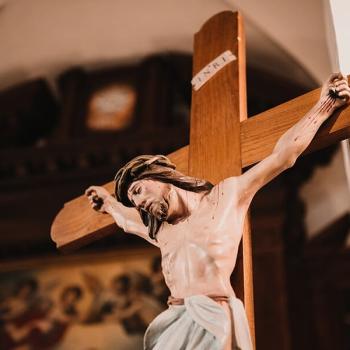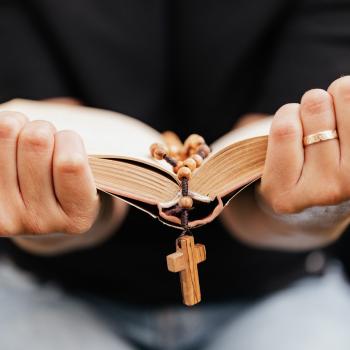 This is the third in a series on Bryan Berghoef’s new book, Pub Theology: Beer, Conversation, and God. Read the first and second post here and here.
This is the third in a series on Bryan Berghoef’s new book, Pub Theology: Beer, Conversation, and God. Read the first and second post here and here.
Excerpt from Chapter 6: An (Un)Safe Place
Many of us who have spent some time at these pub discussions over the last several years have found that when we open ourselves up, we have a lot to learn! Atheists and agnostics began to show up asking questions like, “Why?”
“Why is there something, rather than nothing?”
“Why is there a God at all?”
Buddhists and Hindus began to show up and share profound spiritual insights, such as seeking inner quiet and dealing with suffering. A Muslim friend shared his approach of accepting what is and submitting to the will of Allah. Religious Jews shared the power of ritual and festival, and secular Jews articulated how one can have a deep-rooted sense of tradition and the meaning of God, without actually having to believe in God in the traditional sense.
If anyone’s immediate response to such folks was to point out all the ways we disagree, they likely would not have stayed, and certainly we would have all missed an opportunity for growth.
Having an attitude of listening and learning is not just a clever, back-handed approach to still getting what I want—it is about being genuine. A reason less and less people are showing up at church may well be that no one there seems to listen. Creating a truly ‘safe’ space, where someone can express their doubts (God forbid—even the pastor!), their beliefs, their hopes, and their struggles, is too rare a thing. Rebecca, a regular at our gatherings, is a former Christian who openly declares her lack of belief in God. She has noted that Pub Theology feels like a “safe place” to talk about matters of faith. She also says she never senses a tone of condescension. “So often you try to talk to people about this stuff and it’s clear they feel superior to you and are less than subtle about their underlying agenda to convert you to their position,” she said. “I am glad this place is different.”
Some people fear that creating such an environment opens the door to people doubting or questioning their faith. Yes it does! In that sense, Pub Theology seeks to be an “unsafe place.” Your thinking will be challenged—as it should! If one believes that he or she holds “the truth,” or even, “the Truth”, it ought to be able to stand up under scrutiny. If it cannot, perhaps it is not worth holding. When a person has the attitude that he should not question his belief structure, it reveals the reality that he does not actually want to know the truth, if the truth turns out to be somewhat different than the truth as he now understands it. This person wants to continue on unimpeded in his serene, but simplistic, understanding of life, God and faith, and doesn’t want to be on a boat that encounters some waves.
I understand the fear that accompanies having your beliefs challenged, and why many go out of their way to avoid such challenges. There’s a question I sometimes ask (or want to ask) a person who exhibits this fear: Is this really faith? When you know without a doubt that you have all the right answers, and that you know the “Truth” beyond the shadow of a doubt, faith is rendered somewhat irrelevant, isn’t it? Who needs faith when there is no room for doubt? It seems to me that faith comes into play when we’re not quite sure, but we go ahead and trust anyway. When there is a bit of uncertainty—that is when faith has the opportunity to express itself and grow (see Chapter 10).
Some also fear that creating such an environment means that you have to agree with every perspective, or that you’re not allowed to say what you really think. This is not true. It simply means that you posture yourself as a learner and listener first, and as a teacher second. It means you grant respect to the person across the table, and haven’t already beforehand written their perspective off as wrong and needing to be corrected. It means setting aside an agenda to convert, and learning to converse. At that point, in humility, genuine conversation actually requires that you state what you really think, just as you expected the other person to. And when you express it as ‘this is how I see it’, rather than ‘this is how it is’ (see Chapter 11), that seemingly minor adjustment can make all the difference. There is still a place for personal belief, for conviction, for wanting to share what one believes. But to turn the gathering we have crafted into a place where we will invite you to a particular church or ask you to sign onto a certain theological perspective would be to betray the purpose of the gathering.
There are people all around us who think differently than we do. They have something to teach us. Each and every one of them. Unfortunately our relationships with such people often only go one way. There is no give and take. We are just too eager to give, and the sad irony is that in our zeal to share Jesus as the “way, the truth, and the life”, we find ourselves opposing the very way of Jesus. In the gospels we find a Jesus who was open, welcoming, and hospitable. I’m not sure he was as dogmatic and ungracious as many of his followers have historically been, particularly toward outsiders. (And we wonder why we don’t have many non-Christian friends.)
In our gatherings at the pub, we have, albeit imperfectly, sought to recapture that way, to embody that openness and hospitality. Perhaps by even having this forum, we are in a small way incarnating Jesus to others. And as we do that, it seems that he works out his ways even in us. I have seen a number of people move from their prior position of certainty and immovability to a more nuanced place of faith, and they are glad they did.
“I used to see everything in black and white,” notes one Pub Theology regular. “And boy, I realize it just isn’t that simple. And for that, I’m grateful.”
Another person said, “I’ve learned so much from the people around this table that I previously thought had nothing to teach me.”
When I see this happening, particularly among those who were immersed in the culture of certainty, I know there is hope for everyone else as well.
—
Want to read more? You can read Pub Theology instantly on your Kindle, or get thepaperback version. Follow Bryan’s latest at pubtheologian.com.
 Bryan Berghoef is a pastor, writer, and pub theologian (meaning his best thoughts occur with pint in hand, or his best pints occur with thought in mind – or something like that). His interests are found at the intersection of theology with history, language, literature, culture, the arts, politics, and music – though he admits his greatest passion is studying the original context of the ancient text of the Bible. You can read more of Bryan’s writings at pubtheologian.com.
Bryan Berghoef is a pastor, writer, and pub theologian (meaning his best thoughts occur with pint in hand, or his best pints occur with thought in mind – or something like that). His interests are found at the intersection of theology with history, language, literature, culture, the arts, politics, and music – though he admits his greatest passion is studying the original context of the ancient text of the Bible. You can read more of Bryan’s writings at pubtheologian.com.
















